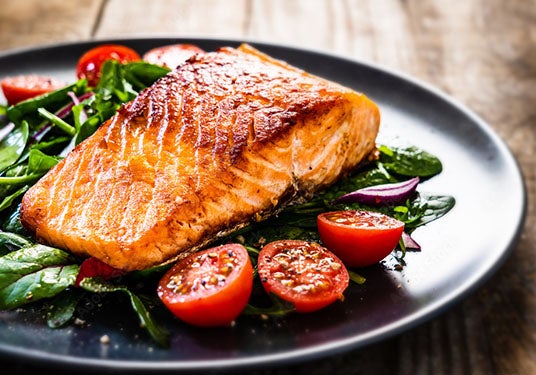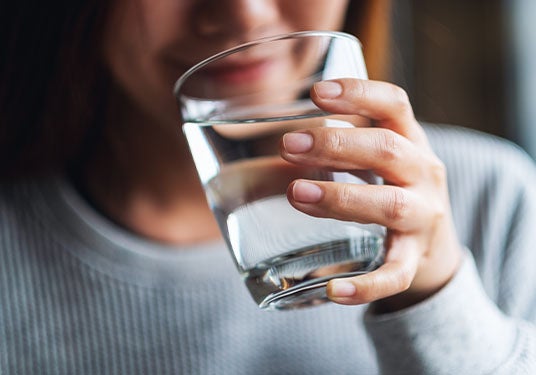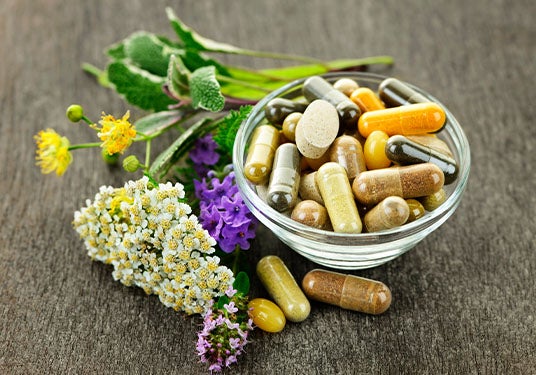When your body activates your immune system, it sends out inflammatory cells. These cells attack bacteria or heal damaged tissue. If your body sends out inflammatory cells when you are not sick or injured, you may have chronic inflammation. Inflammation is a symptom of many chronic diseases, such as arthritis, Alzheimer’s, diabetes, asthma, heart diseases, depression and more.
If you’re concerned about the impact of inflammation on your health, consider the following foods, herbs, supplements, and lifestyle factors as ways to reduce inflammation in your body and live a healthier, happier life.
1. Eat Foods That Reduce Inflammation
One of the easiest ways to reduce inflammation in your body is to be more conscious of what you put in it. Start by limiting your intake of foods known to causes inflammation, such as:
- Sugar
- Dairy products
- Meat (primarily beef and pork): Animals raised on a feedlot are often grain-fed, resulting in a meat product that is high in inflammatory omega-6 fatty acids; beef and pork may also contain arachidonic acid, which promotes inflammation.
- Wheat: Even those who are not gluten-intolerant may have a reaction to wheat that causes increased inflammation in the body.
Once you’ve reduced well-known inflammatory foods from your diet, start adding in foods that fight inflammation, such as:

- Fish: Fatty fish such as salmon, tuna, and sardines are high in omega-3 fatty acids, which can help reduce inflammation.
- Leafy greens: Kale, spinach, broccoli, and other leafy greens, and dark cruciferous vegetables contain high amounts of antioxidants, which can help reduce inflammation levels.
- Nuts, such as almonds and walnuts, contain healthy fats, including omega-3 fatty acids.
- Green tea contains high amounts of antioxidants known as catechins, which can help prevent the creation of pro-inflammatory substances in the body.
- Shiitake mushrooms contain vitamin D, which helps regulate the immune system, which in turn helps regulate inflammatory response in the body.
3. Drink More Water

Here’s one more reason to drink more water: staying properly hydrated can help keep inflammation under control. Water helps flush the body of toxins and other irritants. Plus, water is crucial to keeping many body systems in good working order, helping your body naturally tackle problems more efficiently.
4. Exercise Regularly

Routine exercise helps reduce inflammation in the body. A study from University College London found that just 2.5 hours of moderate exercise a week can lead to a 12% reduction in inflammation markers. As we move, our muscle tissue releases a protein molecule called cytokine that has been connected to a drop in inflammation.
5. Get More Sleep

You hear it time and time again that you need to sleep more! There are many reasons to get more shuteye: it can boost your immune system, help you maintain healthy weight, and even reduce inflammation in your body. Many studies have found a connection between sleep and inflammation. For example, one study from Emory University School of Medicine in Atlanta found that routine sleep deprivation (6 or fewer hours a night) leads to an increase in inflammatory hormones. Sleeping for at least 7 to 8 hours a night can help your body recharge and better fight off stress-related hormones.
6. Try Dry Brushing

As one of the largest organs in the body and an important part of your body’s natural detox system, the skin can play a major role in regulating many things in our bodies, including inflammation. Dry brushing your skin can increase circulation, boost the lymphatic system, improve the body’s ability to remove toxins, and much more. (For more on dry brushing, check out Amie Valpone’s instructions on TheHealthyApple.com.
7. Use an Infrared Sauna

Spending time in an infrared sauna has many health benefits, including possible inflammation reduction. A 2003 study from the Department of Dermatology and Institute of Medical Research found that using near-infrared heat therapy helped alleviate inflammation in the body.
According to Dr. Will Cole, author of The Inflammation Spectrum, almost every health problem – autoimmune conditions, digestive issues, brain problems, and hormonal imbalances included – can be traced back to inflammation gone wild. Infrared saunas naturally reduce inflammation in the body by relieving its core triggers, such as toxins and stress, and promoting circulation and detoxification throughout the body:
Detoxification – Exposure to toxicants has risen exponentially and is pervasive in our environment and bodies. Sweating is part of the body’s way of naturally detoxing of some chemicals, as this study found. Far infrared wavelengths helps release some toxicants trapped within our fat cells and tissue helping our bodies carry them out through sweat and other elimination systems.
Circulation – Infrared saunas stimulate cardiovascular circulation with oxygen-rich blood flow, producing white blood cells to reduce inflammation and calm swelling to alleviate chronic pain.
Stress – Functional medicine and autoimmune expert, Dr. Amy Myers, says that infrared sauna therapy promotes relaxation by helping to balance your body’s level of cortisol, your body’s primary stress hormone. The heat generated by the sauna will also help to relax muscles and relieve tension throughout the body, allowing you to relax and de-stress.









